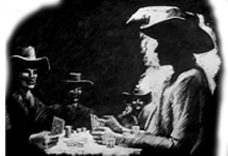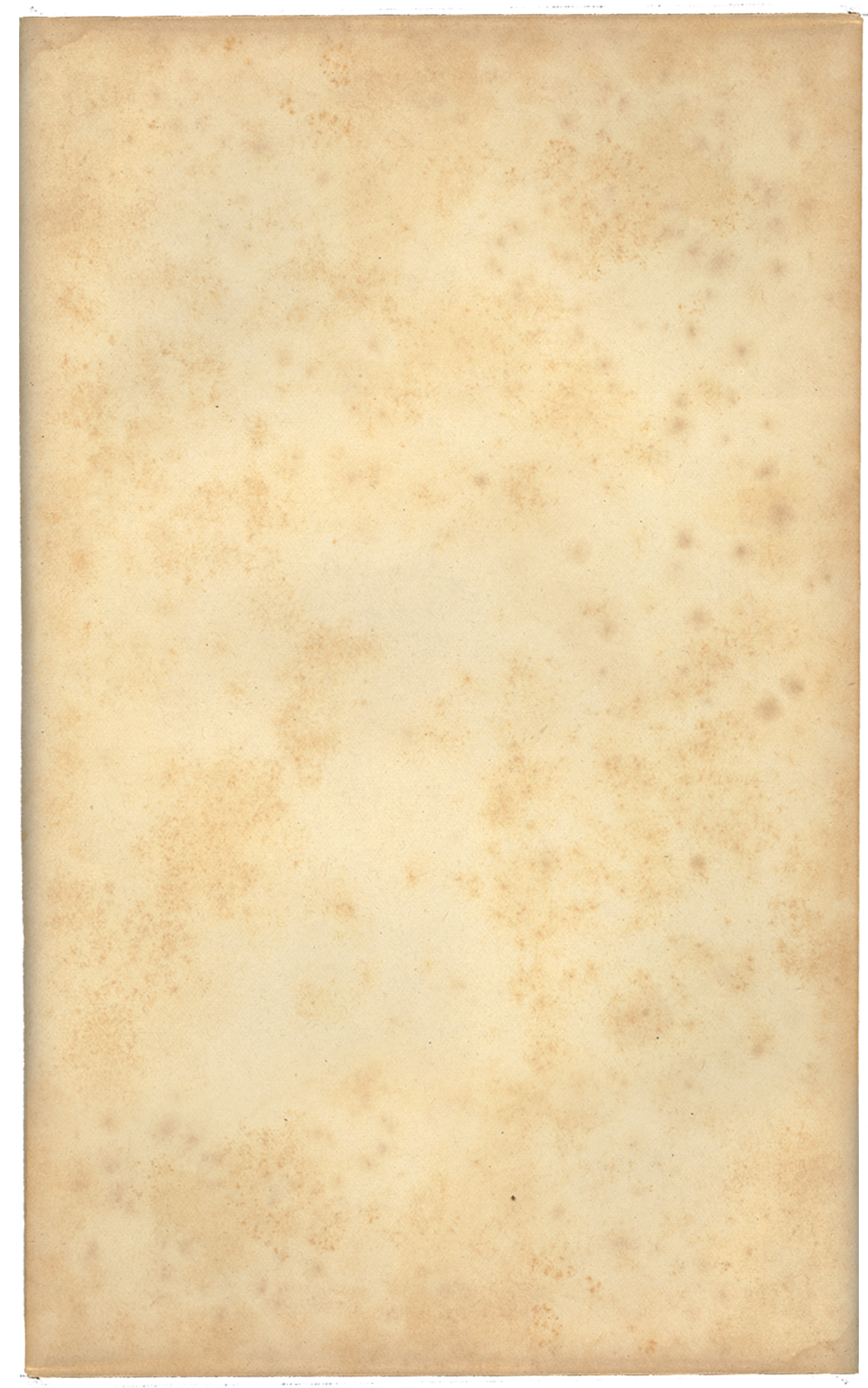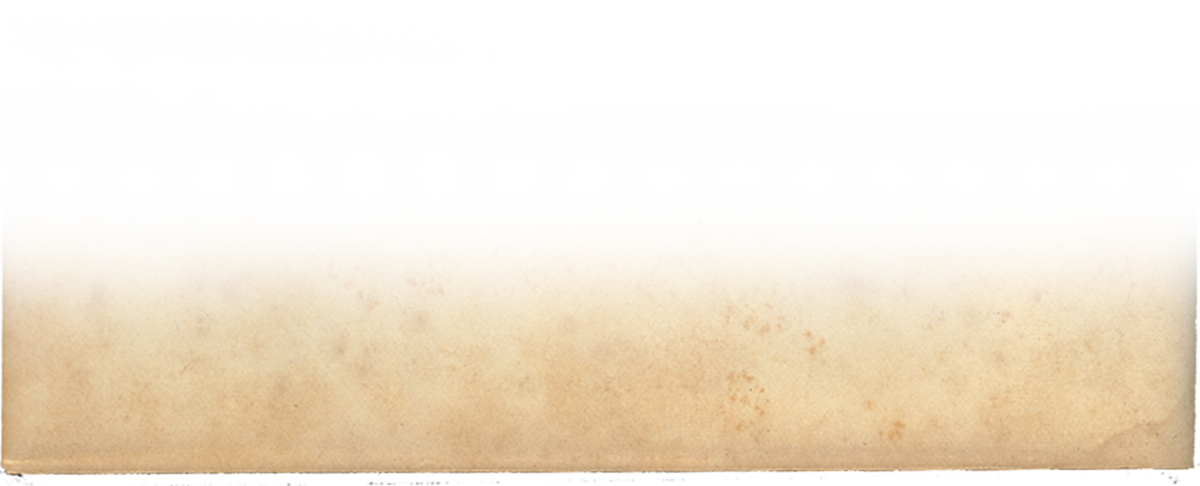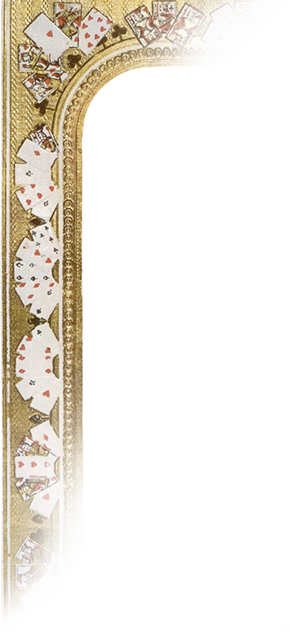




It seems strange that the fundamentals of the Apex Law were virtually unknown to Echo Springs miners, or considered obsolete by those that knew of them. By 1870, the spirit of the law had long been mining custom throughout the West. It was only incorporated into Federal mining law in 1866. In that legislation, however, it was referred to then as the Lode Law.[3] It seems equally strange that Richard Bixby would have argued the obsolescence of such a law only four years after its becoming Federally legislated. Even at that, it was not known as the Apex Law until incorporated into the Federal Mining Law of 1872.[5]
Perhaps Richard Bixby was counting on Joshua Thayer’s long absence from the bench and an unfamiliarity with current law to pass it off in court as "obsolete." But stranger still was Bret Maverick’s belief that a higher court would overturn the decision, since it was a prevailing mining practice at the time. In fact, in spite of more than a century of attempted reforms, the old 1872 Apex Law has yet to be repealed to this day.[5]
Some things in "War of the Silver Kings"
are wild as the wind in Oregon, such as:
On even passing inspection, Bret Maverick's $1000 bill was clearly not Unites States currency. It's easily recognizable as an altered bill from the Mexican state of Chihuahua.[1] Perhaps it was merely part of Bret's bluff as he padded his envelope to fool the hotel clerk. This kind of deceit was not worthy of a Maverick. Be that as it may, Bret might have been able to slip it past the hotel desk, but it is unlikely that such a fraud would get past the scrupulous eyes at Phineas King's poker table. But perhaps the most remarkable aspect of the bill was, considering its design, it would not even be issued until after the Mexican Revolution in 1913, 43 years from the time Bret rode into Echo Springs.[2]
The election of district court judge
According to the banner hanging over Arthur’s bar at McComb’s Saloon, Echo Springs was holding their election for District Judge. But a district judge is, and always has been, a Federal appointment, not an elected office.
In 1870, Utah Territory had three Federal judicial district courts, each with a single district judge. These district courts held jurisdiction over criminal, civil and common law cases, which included mining claim issues.[4]
It’s more likely that the election was for Justice of the Peace, which would have given him limited jurisdiction over civil and criminal cases, and small claims. A Justice of the Peace in Utah Territory could have served a county, precinct, city or town.
It may also be conceivable that the election of District Judge in Echo Springs referred to the mining district, not a Federal Congressional District.[2] This would satisfy the loose title of “District” Judge. It would also fulfill the story’s need, since any appeals of such a court in 1870 Utah would be moved to the Territorial Probate Court in Salt Lake City, just as Richard Bixby did.[4]


McComb's Saloon Entrance. McComb’s other entrance, probably on the opposite side of the building from the main entrance. Bret was told the angry miners had “the place surrounded.”[1]
Bret Maverick's $1000 as he trims some newspaper clippings to pad an envelope for the hotel safe.[1]
A common five-peso note, issued in 1915 by El Estado de Chihuahua.[3]
McComb's Hotel Entrance. McComb’s Saloon and hotel main entrance, the one Bret used to enter the hotel lobby, as seen from the window of Phineas King’s office across the street.[1]


Phineas King referred to it as “Big Mike McComb’s,” although the building’s exterior signs read “McComb’s Saloon.” The signage reading “Saloon” is curious, since the building had a nondescript main entrance but once inside, it seemed to be primarily a fine hotel with a bar just off the lobby. Yet, there was no hotel signage outside (although the building next door had a shingle hanging outside advertising “rooms,” possibly one of the miners’ boarding houses).
McComb’s apparently had two entrances: one was the rather plain main entrance facing the main street across from Phineas King’s office and another, highly ornamented entrance apparently on another side of the building. Angry miners swarmed both entrances when they blamed Bret Maverick for King’s flooding of the mine tunnels. Big Mike told Bret they had the place surrounded, so a second entrance was implied. But Mike also told him he’d have a horse waiting around the back for him to make his getaway. Perhaps there is a back alley that the miners were not watching. Big Mike mentioned the saw dust on the floor of the saloon to King, yet the wooden floors were always swept clean.[1]
SOURCE REFERENCES
01. Maverick, War of the Silver Kings (1957), Warner Bros. Pictures, Inc.
02. The Conjectural Maverick, Maverick Trails
03. Paper Money of Chihuahua, $5 dos caritas — Maverick-Clarke (retrieved March 14, 2014)
04. Utah Court System: Territorial Period 1850 – 1896 (updated February 13, 2004), Utah State Archives and Records Service
05. Parry, William T., All Veins, Lodes, and Ledges Throughout Their Entire Depth: Geology and the Apex Law in Utah Mines (2004), The University of Utah Press
Home | The Maverick Saga | Trail Maps | Chronology | Maverick Lore | Production | The Inside Straight | Contact Maverick Trails
Maverick Trails is not endorsed, sponsored or affiliated with Warner Bros. Entertainment, Inc. or the Maverick franchise.
Maverick™ and its various marks are trademarks of Warner Bros. Entertainment, Inc., © 1957, 1994
©2014, 2015, 2016 Maverick Trails
